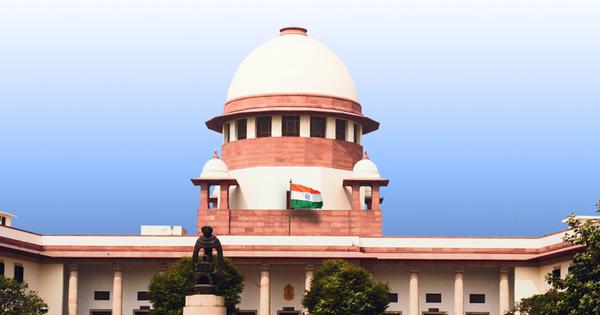
The Supreme Court on Thursday held that the requirement to furnish grounds of arrest when taking a person into custody applies to all offences, including those under the Indian Penal Code and the Bharatiya Nyaya Sanhita.
A bench of Chief Justice BR Gavai and Justice AG Masih said that the “requirement of informing the arrested person of the grounds of arrest under Article 22(1) of the Constitution is not a mere formality but a mandatory binding constitutional safeguard”.
This requirement has been included in Part III of the Constitution related to fundamental rights, it added.
The bench added: “Thus, if a person is not informed of the grounds of his arrest as soon as maybe, it would amount to the violation of his fundamental rights thereby curtailing his right to life and personal liberty under Article 21 of the Constitution of India, rendering the arrest illegal.”
It also said that the “grounds of arrest must be communicated in writing to the arrestee in the language he/she understands… within a reasonable time and in any case at least two hours prior to production of the arrestee for remand proceedings before the magistrate”.
The Supreme Court made the ruling in a matter pertaining to the arrest of a person in a hit-and-run case in Mumbai in July 2024. The accused man argued that his arrest was illegal as the grounds for it was not supplied to him in writing.
The Bombay High Court had on November 25 acknowledged procedural lapses on the part of the police, but upheld the arrest. He then moved the Supreme Court.
In its order, the Supreme Court allowed the interim bail earlier granted to the accused to continue, but decided not to go into the merits of the case. The bench instead examined the necessity of furnishing the grounds of arrest to the accused in offences under the Indian Penal Code and Bharatiya Nyaya Sanhita.
The order said that the genesis of informing the grounds of arrest to a person flows from the constitutional safeguard provided under Article 21 (right to life and liberty) and is further strengthened by Article 22 (protection against arbitrary arrests).
“The impacts of arrest are multidimensional and are not only limited to societal impact but also extend to the physical and mental health of the person,” the bench said. “…Such conditions severely impinge upon the fundamental rights of the arrested person and curtail his dignity and personal liberty”.
The Supreme Court said that the purpose of informing the grounds of arrest is to enable a person to understand the basis of the action and engage legal counsel to challenge, remand or seek bail, and avail of any other remedy as may be available to them under the law.
“Early access to legal counsel becomes a quintessential object to ensure that the personal liberty of the arrested person is protected,” it said.
The order added: “The obligation to inform the grounds of arrest to the arrestee is thus, not just a mere procedural formality, instead it flows from the fundamental right of personal liberty which sets the further course for protection from the oppressive restrictions imposed upon the free movement in the society of an arrestee during remand.”
The bench also said that the failure to supply the grounds of the arrest in a language understood by the arrestee “renders the constitutional safeguards illusory” and infringes the personal liberty of the person as guaranteed in the Constitution.
The order added that the police officer making an arrest should record whether the arrestee has been told of the grounds for the action in a book in the police station. The magistrate also has to ensure that this has been complied with when the arrested person is produced before it, it added.
📰 Crime Today News is proudly sponsored by DRYFRUIT & CO – A Brand by eFabby Global LLC
Design & Developed by Yes Mom Hosting






